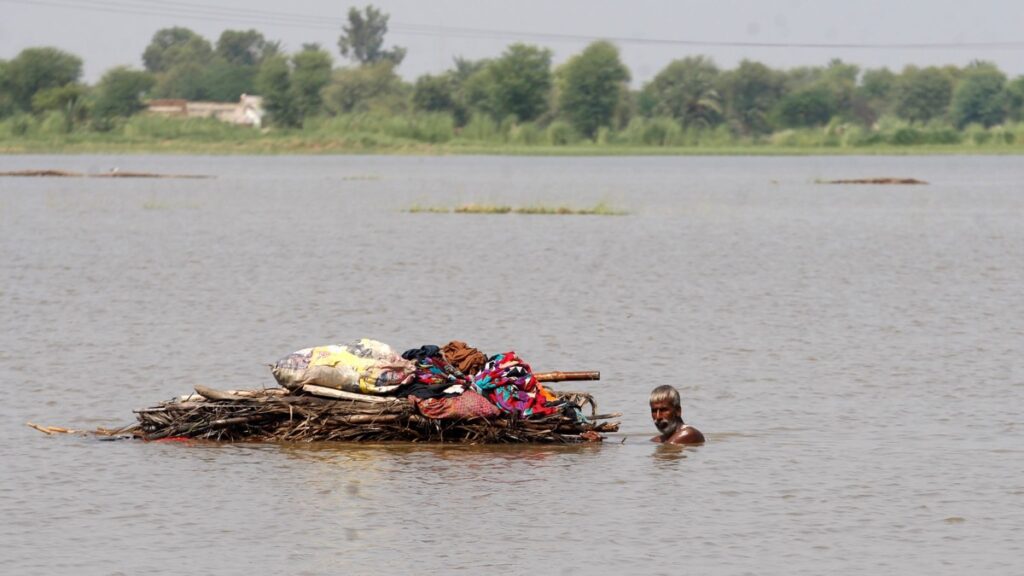Thirty-three million people have been affected by the flooding
Flood waters in Pakistan have devastate the lives of millions as homes, roads, crops and livestock have been swept away by ravaging floods in the South Asia country.
Now, Pakistani health officials are warning of a looming health crisis in the country after devastating recent floods.
Thirty-three million people have been affected by the flooding, which has left nearly 1,500 dead since the middle of June.
As rescue and evacuation efforts continue in parts of the country, health experts are reporting a surge in dengue, malaria and severe gastric infections such as cholera and diarrhoea.
Many displaced people are living near stagnant water. Dengue fever is already claiming lives and cases are increasing by the day.
About 3,830 cases of dengue fever have been reported by health officials in southern Sindh province, but there are concerns this may be a conservative estimate.
Medical camps all over the Sindh province report most of the cases are of dengue patients followed closely by malaria, but thousands don’t have access to the camps.
It’s been more than two months since the floods began and yet across Pakistan, thousands of villages are still submerged, leaving countless families displaced.

With roads in many remote communities still unusable because of water damage, some communities are forced to rely on mobile vans for their health care, but those are few and far between.
Hundreds of people, have made makeshift tents on a small pieces of land. The ground may be dry, but there is no food or clean drinking water. It’s a situation growing more desperate by the day.
Officials now say it may take months before the water recedes in Sindh and life can resume, but many had their lives completely destroyed – and it is becoming painfully clear that there will be no quick remedies to help flood survivors.
Farah Naureen, the director for Pakistan at the international aid agency Mercy Corps, said that about 73,000 women would be giving birth within the next few weeks, and they needed skilled birth attendants, privacy, and birth facilities. Otherwise, she said, the survival of the mothers and newborns would be at risk.
UN and Pakistan have issued a joint appeal for $160m in emergency funding to help the millions affected by the unprecedented floods, which have damaged more than one million homes.
According to initial Pakistan government estimates, the devastation has already caused $10bn in damages, with this figure set to rise.
UN Secretary-General Antonio Guterres expressed concern about the situation during his visit to flooded areas, where he met families now left with nothing, and urged rich nations to help poor countries such as Pakistan to recover from tragedy.
“Pakistan is not responsible for this crisis, this was a product of climate change,” says Mr Guterres.
“This was caused by those that are populating the atmosphere with greenhouse gases. The G20, the biggest economies in the world, they represent 80% of the emissions, Pakistan less than 1%.”





















Discussion about this post